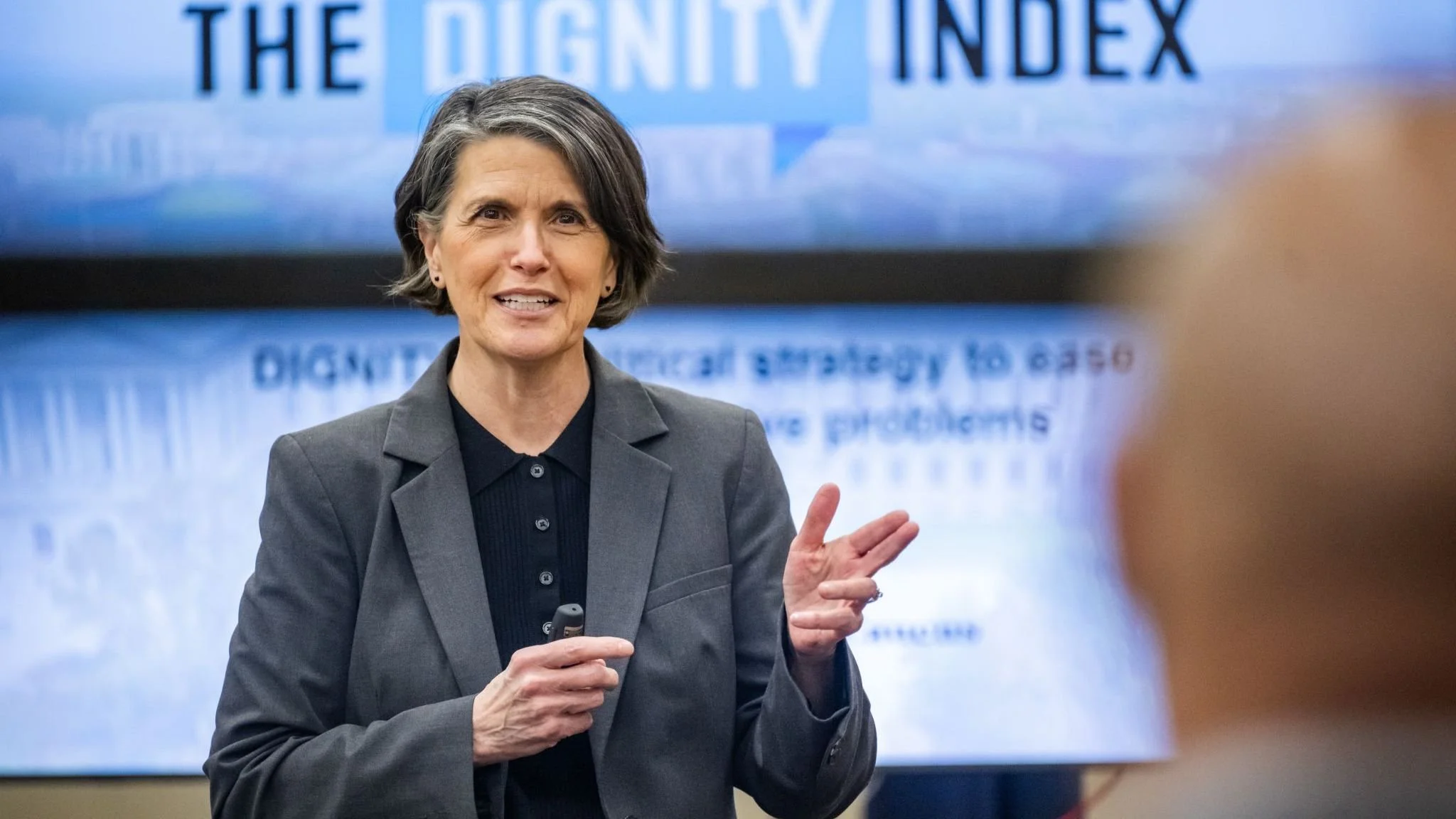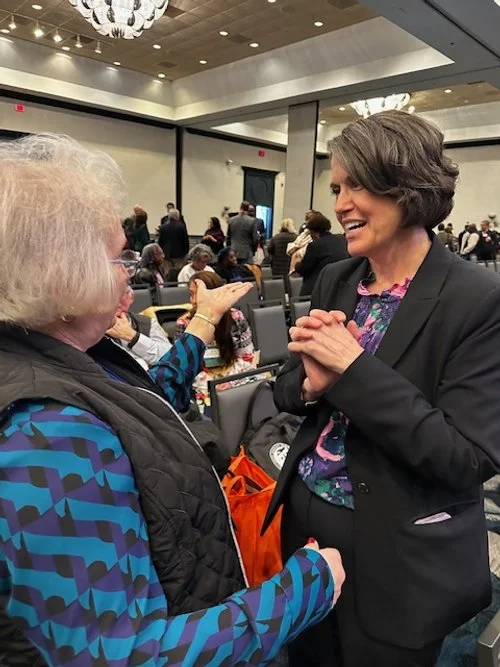A few months ago, after I had presented the Dignity Index to a group of people who work with at-risk teenagers, a woman asked to speak to me out in the hallway, away from the group. My immediate thought was that I might have said something that offended her. But when we stepped away from the group, tears welled up in her eyes as she said, “Thank you so much for this presentation. Things are really hard right now. I feel I’m getting attacked. My work is being mocked. Even with family members. You’ve given me the language I’ve been looking for to describe what I’m feeling. My dignity is being violated. Now that I can name it, I can do something about it. Thank you.” We shared a hug and I left the conference with immense gratitude and hope.
I get a lot of moving comments from people who learn about the Dignity Index, but this was the first time I’d heard someone describe the personal impact of the Index this way – giving them the words to understand and talk about the pain they are feeling.
Dr. Donna Hicks, whose book Dignity was foundational to our development of the Dignity Index, recently recounted to us the moment she landed on dignity as the underlying concept in her work in international conflict resolution. She said she had been working with opposing factions sitting together at the table when someone erupted in anger. Donna said: “Those are deep emotions. Can you tell us what was going on for you?” Their response was, “Emotions?! This isn't about emotions. This is about justice. This is about identity. This is about inclusion!”
Donna said that after this interaction she began searching for the right words to use to get people to understand and talk about the pain they’re experiencing. She said that, “in what was like an epiphany,” she landed on the word dignity. “There's magic surrounding that word, because the minute I mentioned [people’s] dignity, they sat up straighter. They’d say, Yeah, I'll talk about that. I'll talk about our dignity.”
As soon as people learn the language of dignity, they become more sensitive to how they treat others.






